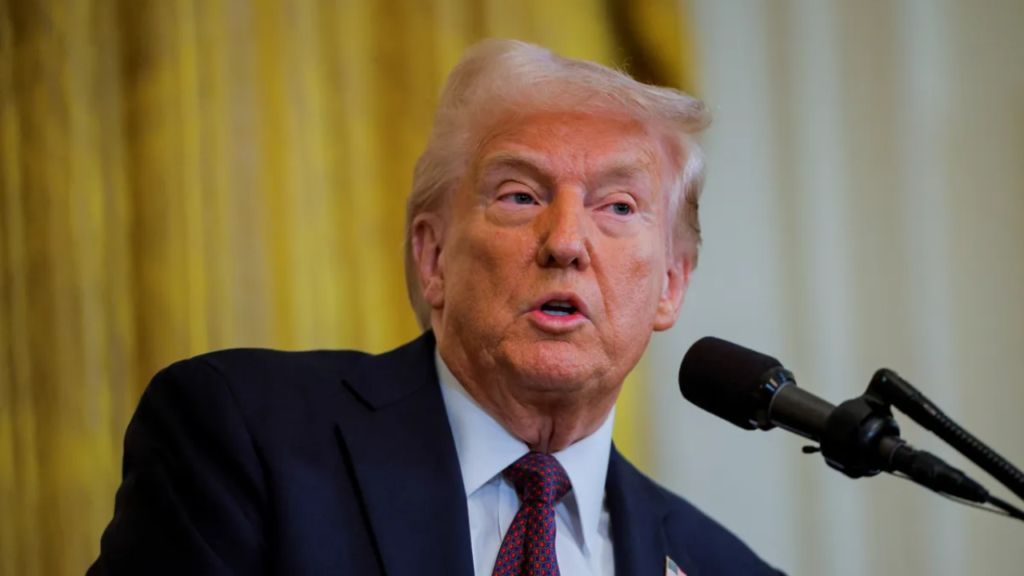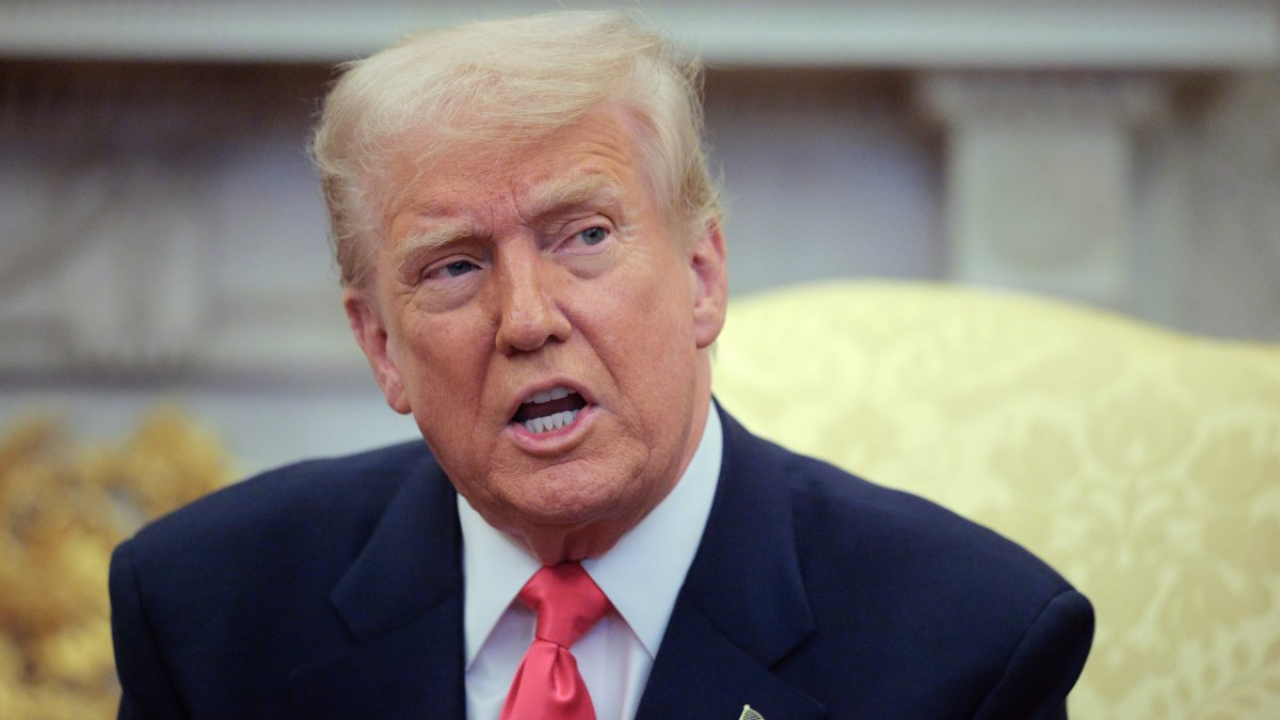Former President Donald Trump’s approval rating has dropped to its lowest level since the start of his second term, according to a new poll by Reuters/Ipsos.
The decline reflects growing concern among Americans over his attempts to expand presidential powers and his confrontational stance toward institutions like universities and cultural centers.
The nationwide poll, conducted over six days and ending on Monday, shows that only 42 percent of Americans currently approve of Trump’s job performance.
This marks a slight decrease from 43 percent three weeks earlier and a significant fall from the 47 percent he had following his second inauguration.
Since returning to power, Trump has issued dozens of executive orders targeting various federal departments, educational institutions, and legal organizations. Many Americans feel uneasy about how he’s trying to reshape key parts of the government and society to fit his political agenda.
One of the poll’s most revealing findings is that a majority of Americans – 83 percent – believe the president must obey court orders, even when he disagrees with them.
This belief is shared across party lines, with 73 percent of Republicans and 96 percent of Democrats agreeing. This issue gained attention after a judge ordered the government to stop the deportation of alleged members of a Venezuelan gang who hadn’t been given a chance to challenge the ruling in court.
There is concern that if the administration refuses to follow the court order, officials could face criminal contempt charges.
The poll also explored public opinion on Trump’s ongoing conflict with universities. Trump has been vocal about his dissatisfaction with what he calls “political bias” and “ineffective diversity programs” in higher education.
In response, he froze over $2 billion in federal funding to schools like Harvard University, which he claimed didn’t comply with his expectations.
However, the majority of Americans—57 percent—disagreed with the idea that a president should withhold money from universities simply because he doesn’t like how they are being run. Even among Republicans, 28 percent disapproved of such actions.
Another major concern highlighted in the poll is Trump’s desire to control national cultural institutions. In one recent order, he demanded that the Smithsonian Institution remove materials he deemed “improper,” which 66 percent of respondents opposed.
People generally believe that institutions like museums and theaters should remain independent from political influence.

When asked about how Trump is handling specific national issues, respondents were largely critical. Many expressed dissatisfaction with his policies on inflation, taxation, and immigration. Immigration remains Trump’s most divisive issue—while 45 percent support his approach, 46 percent disapprove.
On the international front, 59 percent of Americans said they believe the U.S. is losing global respect under Trump’s leadership. Even among Republicans, one in three shared this concern.
Trump has recently hinted at wanting to run for a third term, despite the Constitution limiting presidents to two. According to the poll, 75 percent of Americans—including more than half of Republican respondents—believe he should not try to stay in power beyond the allowed two terms.
Economic performance is another weak point in Trump’s approval ratings. His policies, particularly related to trade and tariffs, have caused financial instability.
His pressure on the Federal Reserve and unpredictable economic strategies have led to the worst market sell-off since the Covid-19 pandemic.
Only 37 percent of Americans approve of his handling of the economy, down from 42 percent in January. During his first term, this figure stayed between the mid-40s and mid-50s.
James Pethokoukis, a senior fellow at the conservative American Enterprise Institute, pointed out that Trump had promised major economic growth and prosperity but hasn’t delivered.
He said, “You have a president who promised a golden age. But everything that’s supposed to be up is down, everything that’s supposed to be down is up.”
This feeling is echoed by many Americans who participated in the poll. A quarter of Republicans and 56 percent of all respondents said Trump’s economic decisions have been too unpredictable.
Ipsos President Clifford Young supported this by explaining that most Americans now associate tariffs with inflation, high prices, and financial stress. “Despite the populist appeal of tariffs, they are broadly unpopular,” he wrote.
Perhaps the most alarming takeaway is how Americans see Trump’s actions affecting their future. Over half of the respondents—52 percent—said they believe his decisions could make it more difficult for them to retire comfortably. Only 31 percent disagreed with that statement.
Overall, the latest poll paints a clear picture of declining trust in Trump’s leadership and growing discomfort with the way he is expanding presidential powers.
While he still holds strong influence among his core supporters, the wider public is showing signs of resistance to the direction he is taking the country.
Disclaimer- Our team has thoroughly fact-checked this article to ensure its accuracy and maintain its credibility. We are committed to providing honest and reliable content for our readers.






